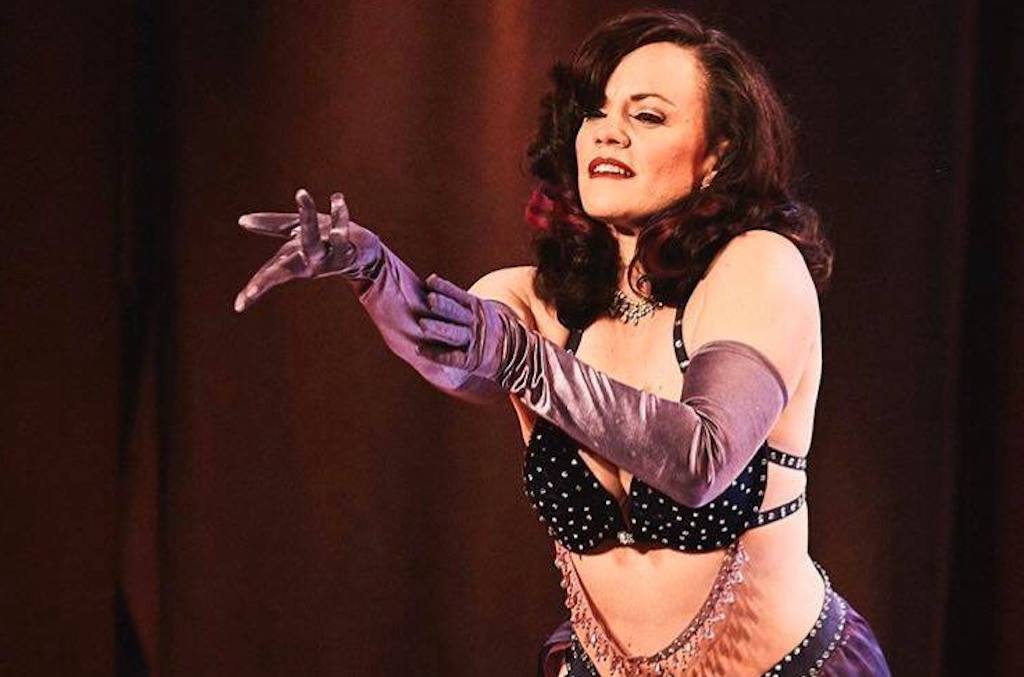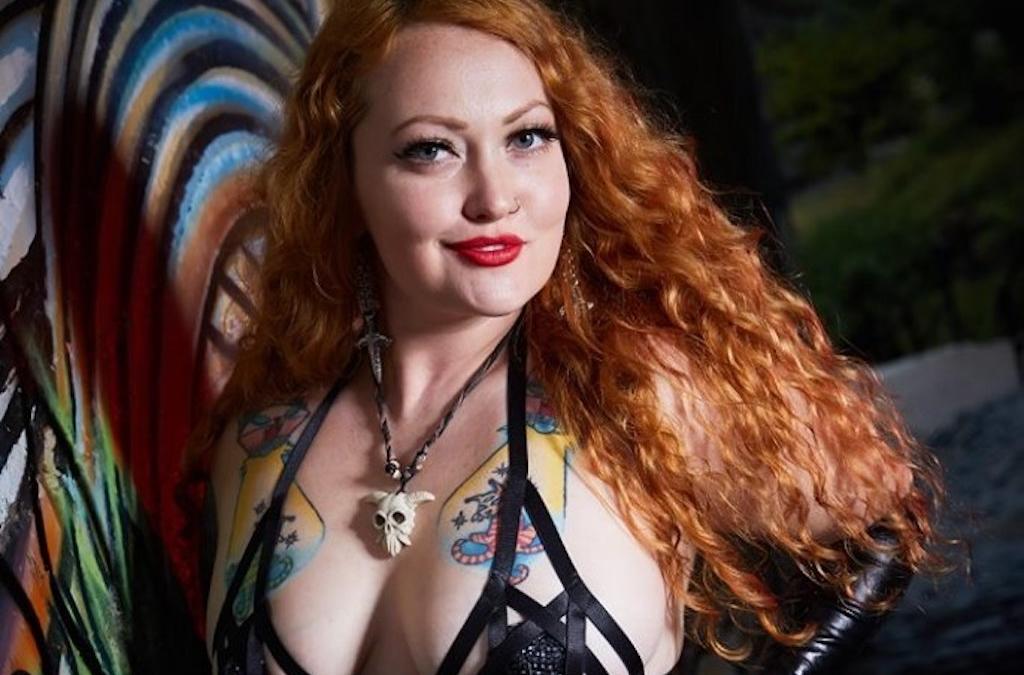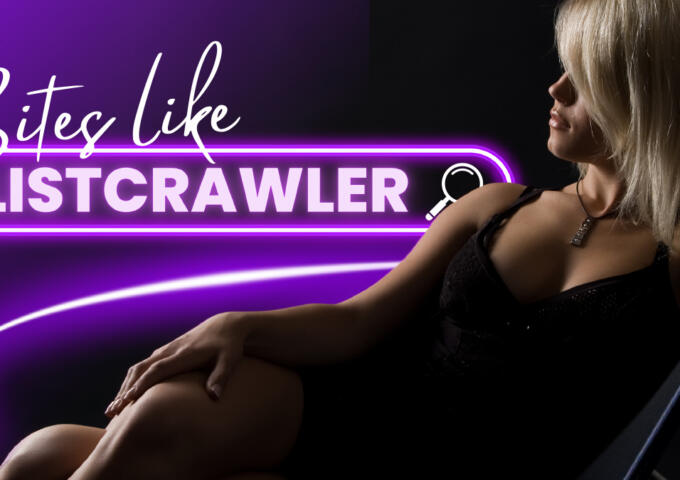“For me, everything changed Friday, March 13,” says Philly burlesque artist Queen Powell, known by the stage name Queen of Hearts.
She’s been dancing professionally for 14 years and became a burlesque performer two years ago. “I was supposed to go out of town with the burlesque troupe I’m in and I had to make the hard decision to stay home.”
The 24-year-old then made “the tough decision to cancel my first Twerklesque weekend, which was completely sold out.” Soon after, she found the decision taken out of her hands. “Broadway went dark. Everything seemed to snowball from there,” she says.
Burlesque shows in Philadelphia began to cancel: slowly at first and then cascading, and soon the venues scheduled to house them were shuttered entirely, due to fears of COVID-19.
“My full-time job as a hairstylist assistant manager was closed,” she added. “All future engagements were put off for the foreseeable future.”
Powell is one of the hundreds of Philadelphia-area cabaret artists who find themselves suddenly cut off from not only their means of artistic expression and social connection but also income.
Across the globe, showgirls, strippers and sex workers join the increasingly large ranks of the unemployed; but workers in more sexual and stigmatized occupations have fewer options for unemployment assistance, business loans and other support. Even in places where sex work is legal, like Germany or parts of Nevada, sex workers are not offered support through unemployment because they are classified as independent contractors. In Japan, hostesses and brothel workers are specifically excluded from receiving government compensation during the quarantine.
In the United States, legal, taxpaying, sexy industries were specifically denied access to some small business loans.
Any small business that presents “live performances of a prurient sexual nature,” is precluded from applying for the SBA’s Economic Injury Disaster Loan Program. Sex negativism was literally written into the bailout.
Some burlesque performers, strippers and sex workers are trying to take their jobs online. For established cam models or performers with large social media followings, this might be a viable alternative. The New York Times reported an influx of new performers and audience profiles on camming sites like CamSoda but found that earnings for cam performers have remained largely static.
Newer viewers aren’t tipping as much, and many reliable customers are finding themselves without the disposable income to tip. For those performers who share limited living space during quarantine, who are now taking care of kids during the day, or who lack the money to invest in equipment, camming may have become less possible to do.
To add to the frustration, social media prudery is standing in the way.
Stephanie Anders is no stranger to social media censorship. A professional domme and fetish model with over 12 years of experience in the industry, she’s been shadow-banned on Instagram for “weeks and months at a time” and tossed in proverbial Facebook jail (barred from posting or using messaging services) repeatedly.
“Social media has been going downhill for years, but this last year specifically is out of control,” says the Kensington resident who uses social media to promote her events and services, communicate with clients, and stay in contact with friends.
“I realize our puritanical social networking overlords have an ax to grind with us SWs but is now really the time to force people into further isolation and withdraw a tool that helps many people make money? Don’t even get me started on the hypocrisy of choosing now of all times to hassle the content creators that we all know everyone is turning to right now.”
– Professional domme and fetish model Stephanie Anders
Last week she found herself barred from her accounts after resharing a 2-year old picture Facebook had suggested to her as a memory. While sexy, it did not violate Community Standards as written.
“I tried to dispute this and got an immediate response saying due to COVID-19, Facebook is short-staffed and all decisions are final,” she says. Now she can’t post, message her contacts, comment on posts, or even “like” content for 30 days.
“I realize our puritanical social networking overlords have an ax to grind with us SWs but is now really the time to force people into further isolation and withdraw a tool that helps many people make money?” she asks, adding, “and don’t even get me started on the hypocrisy of choosing now of all times to hassle the content creators that we all know everyone is turning to right now.”
Facebook’s Community Guidelines have always been anti-nudity, but after the passage of FOSTA-SESTA (a pair of federal bills meant to combat sex trafficking that widely limits free speech and, in reality, have made it harder to rescue trafficking victims) in 2018, the rules became even stricter. Users can be barred from using the site not only for arbitrary amounts of partial nudity but also for describing sexual preferences or making innuendo about sexual services.
That includes posting advice to other performers who might consider doing cam performance work, sharing safety tips or rate sheets on how to price saucy pics and videos. Multiple performers have found themselves cut off from Facebook while attempting to protect newer models in these ways.

Navigating this makes life much harder for people in sexual industries. Strippers, burlesque performers, models, and professional dommes like Stephanie drive traffic to social media with their content but are forced to walk an ever-changing tightrope of regulation. Performers cut off from their social media will find it harder to make a living online, an especially frustrating obstacle in the era of social distancing.
“As far as business goes, things are pretty tight. With many people out of work, they aren’t motivated to purchase more than what’s necessary, says Stephanie. She’s no longer able to book in-person sessions with clients but she’s being resourceful. “I’m hustling. Selling digital content as much as I’m able, and only buying what I absolutely need.”
Sex workers may not receive much in institutional support, but communities are organizing lists of sex-work specific resources and mutual aid groups. Harm-reduction organizations, like Philly’s Project Safe, are offering guidance, aimed especially at people in street-based economies. The organization, which has long been at the forefront of sex workers’ rights activism in the area, published a wellness guide on “the intersection of COVID-19, drug use and sex work.” The guide takes a practical approach for reducing risk of infection for those who are unable to physically distance, as well as advice on preventing overdose in a time of increased isolation.
For people interested in helping sex workers during the pandemic, there are many options for donating money and supplies. Another important consideration is to support performers directly, by paying for porn or tipping dancers during their virtual shows. Many sex workers and showgirls have Amazon wishlists where needed items can be purchased for them by supporters.
Another great option is to take classes taught online by showgirls and other out-of-work performers. Virtual workshops offering training in everything from seduction techniques to costume-making, fitness classes or sultry burlesque movement have popped up in recent weeks.
“While it doesn’t 100 percent take the place of being in the studio, my students have loved it!” says Ginger Leigh, founder and director of the Philadelphia Burlesque Academy, who stopped teaching in-person classes March 11.

She’s been offering workshops at a sliding scale on Tuesdays and Thursdays. “It takes people’s minds off of the current stressful and uncertain state of the world for at least a little while, myself included! Burlesque classes, by nature, tend to boost confidence and leave people feeling more connected to their bodies. This seems to ring true even virtually!”
The Fishtown resident has been performing burlesque for 14 years, and teaching for eight, but she has little certainty about what the future holds. “There is the chance that even when we are back up and running that people simply won’t have the means for the extras in life, like burlesque classes. There is also a chance that people will be itching to get back in the studio to connect with other like-minded participants and move their bodies in ways that make them feel amazing in their own skin,” she says, continuing, “there is just no way to know what will happen when we get to the other side. Until then, I’ll keep teaching online for as long as people will join in!”
Queen of Hearts is also turning to virtual shows and classes. She’s optimistic, saying, “I am hoping that by May we can flatten the curve and be back to business as usual! That’s the hope I am holding on to.”
As for Stephanie, she says, “My hopes are for everyone to just listen to the damn CDC so we can help ourselves and catch up with this fast-acting virus. I hope everyone I love will be okay.” Long-term she believes “this inefficient society will implode and be forced to change. The veil is officially lifted. Corruption and weaknesses have been fully exposed. There’s nothing left to deny, we need to reform. That or Thunderdome.”





